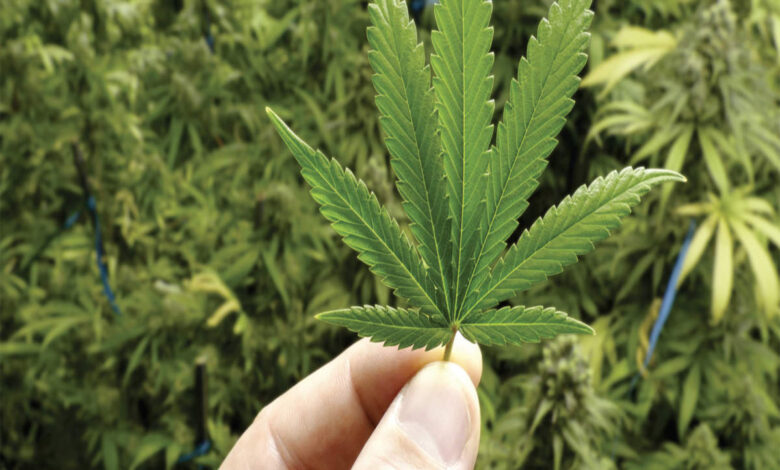Adults consuming marijuana on daily basis are 25% more likely to have a heart attack
Daily cannabis users had a 25% higher chance of experiencing a heart attack and a 42% higher chance of stroke compared to non-users

Cannabis (marijuana) consumption, whether through smoking, eating, or vaporization, may increase the risk of heart attacks and strokes, according to recent studies.
Individuals who reported cannabis use in surveys were found to have an elevated risk of cardiovascular complications. This was observed regardless of their tobacco usage or the presence of other cardiovascular risk factors. These findings were published in a recent edition of the Journal of the American Heart Association.

Dr. Abra Jeffers, the principal investigator of the study and a data analyst at Massachusetts General Hospital in Boston, stated in a press release that despite widespread usage, the risks associated with cannabis consumption, especially those related to cardiovascular diseases, remain largely unknown. She noted that the perceived harm of cannabis smoking is decreasing, and many do not view it as a health hazard.
Furthermore, Dr. Jeffers highlighted that inhaling cannabis smoke, which is the most common method of consumption, could pose additional risks due to the inhalation of particulate matter.
In the U.S., the number of cannabis users has seen a significant rise in recent years, with its recreational use now legal in 24 states and the District of Columbia. A 2019 federal survey revealed that over 48 million individuals aged 12 and above reported using cannabis at least once, nearly twice the number reported in 2002. However, at the federal level, cannabis use is still considered illegal.
Tobacco usage is common among cannabis users
Previous research exploring the connection between cannabis use and heart attacks or strokes has been limited due to several factors. The proportion of frequent cannabis smokers is relatively small, most studies have focused on younger populations with a lower risk of cardiovascular disease, and many cannabis users also consume tobacco, complicating the isolation of cannabis effects.
In this recent study, researchers analyzed survey data from the Centers for Disease Control and Prevention, encompassing 434,104 U.S. adults from 2016 to 2020. They examined whether the frequency of cannabis use in the past month correlated with self-reported cardiovascular outcomes, including coronary heart disease, heart attacks, and strokes. This analysis was conducted for the general adult population and for individuals who had never smoked tobacco or used e-cigarettes. The researchers also explored these associations among men under 55 and women under 65 who were at risk for heart disease.
The study found that any cannabis use was associated with a higher risk of heart attacks and strokes, with the highest risk observed among frequent users. Daily cannabis users had a 25% higher chance of experiencing a heart attack and a 42% higher chance of stroke compared to non-users. Smoking was identified as the most prevalent method of cannabis consumption, followed by ingestion and vaporization.
For men under 55 and women under 65, cannabis use resulted in a 36% higher combined risk for coronary heart disease, heart attack, or stroke. This was observed regardless of their tobacco use and even among those who had never used tobacco products or e-cigarettes.
Dr. Jeffers pointed out that cannabis smoke is not much different from tobacco smoke, except for the psychoactive substance: THC in cannabis versus nicotine in tobacco. She emphasized that their study indicates that smoking cannabis carries significant cardiovascular risks, similar to smoking tobacco. This is particularly crucial given the increasing trend of cannabis use and the decreasing trend of conventional tobacco use.
Dr. Robert L. Page II, who led the writing group for a 2020 American Heart Association scientific statement on the effects of cannabis on cardiovascular health, stated that these new findings should serve as a wake-up call for all healthcare practitioners about a potentially dangerous combination. Dr. Page, a professor of clinical pharmacy, medicine, and physical medicine at the Skaggs School of Pharmacy and Pharmaceutical Sciences at the University of Colorado School of Medicine in Aurora, was not involved in this study.
He emphasized that as cannabis use continues to expand in legality and accessibility across the U.S., healthcare providers need to assess cannabis use during each patient interaction. This would facilitate an open, nonjudgmental discussion about potential cardiovascular risks and strategies to mitigate these risks, he added.
You might also be interested in – Research Indicates Less Than 4,000 Daily Steps Can Improve Brain Health



